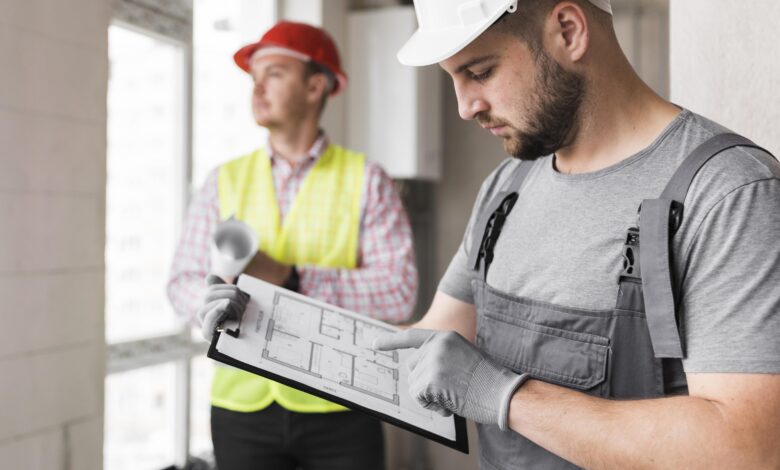Exploring the Benefits of Hiring a Home Inspector

Introduction
Purchasing a home is one of the most significant investments you’ll make in your lifetime. It’s a decision that requires careful consideration and due diligence. While the process can be exciting, it’s crucial to ensure that the property you’re interested in is in good condition and free from any major defects or issues. This is where hiring a professional home inspector comes into play. In this article, we’ll explore the numerous benefits of enlisting the services of a qualified home inspector.
Understanding the Role of a Home Inspector
A home inspector is a trained professional who conducts a comprehensive visual examination of a property’s condition. Their primary role is to identify potential problems, defects, or areas of concern that may not be immediately apparent to the untrained eye. Home inspectors in Fort Worth TX are knowledgeable about various aspects of a home, including structural integrity, electrical systems, plumbing, heating and cooling systems, roofing, and more.
Benefit #1: Identifying Potential Issues
One of the most significant benefits of hiring a home inspector is their ability to identify potential issues that could prove costly or problematic down the line. Even a seemingly well-maintained home can have hidden defects or areas of concern that may not be visible during a casual walk-through. A trained home inspector has the expertise to spot these issues and provide you with a detailed report outlining their findings.
Structural Integrity
A home inspector will thoroughly evaluate the structural components of the property, including the foundation, walls, floors, and roof. They’ll check for signs of settling, cracks, or other structural deficiencies that could compromise the integrity of the building.
Electrical and Plumbing Systems
Faulty electrical wiring or plumbing issues can pose serious safety risks and lead to costly repairs. A home inspector will examine these systems to ensure they are functioning properly and up to code.
Heating, Ventilation, and Air Conditioning (HVAC)
Properly functioning HVAC systems are essential for maintaining a comfortable living environment. A home inspector will assess the age, condition, and efficiency of these systems, identifying any potential issues or areas that may require maintenance or replacement.
Benefit #2: Negotiating Power
Armed with the information provided by a professional home inspector, you’ll have a stronger negotiating position when it comes to the purchase price or requesting repairs. If significant issues are identified, you can use the inspection report as leverage to negotiate a lower price or request that the seller address the problems before closing.
Cost Savings
By identifying potential issues before the purchase is finalized, you can avoid costly surprises down the road. Addressing these problems early on can save you thousands of dollars in repairs or renovations.
Peace of Mind
Knowing that you’ve thoroughly inspected the property and addressed any issues can provide invaluable peace of mind. You’ll be able to move into your new home with confidence, knowing that you’ve taken the necessary steps to ensure its soundness.
Benefit #3: Maintenance and Repair Planning
A detailed home inspection report can serve as a valuable resource for planning future maintenance and repairs. The report will outline the current condition of various components of the home, allowing you to prioritize and budget for any necessary repairs or upgrades.
Preventative Maintenance
By identifying areas that may require attention in the near future, you can schedule preventative maintenance tasks to prolong the life of certain components and avoid more costly repairs down the line.
Budgeting for Repairs and Upgrades
The inspection report can provide you with a roadmap for budgeting and planning for any required repairs or upgrades. This can help you allocate funds appropriately and avoid unexpected expenses.
Benefit #4: Code Compliance
Building codes are in place to ensure the safety and structural integrity of residential properties. A professional home inspector will assess the home’s compliance with local building codes and regulations, identifying any potential violations or areas that may require attention.
Safety Considerations
Code violations can pose serious safety risks, such as electrical hazards, structural instability, or inadequate fire protection measures. Addressing these issues can help ensure the safety of you and your family.
Resale Value
Ensuring that your home is up to code can also have a positive impact on its resale value. Potential buyers will be more confident in the property’s condition, knowing that it meets all necessary standards and regulations.
Benefit #5: Environmental Concerns
In addition to assessing the physical condition of the property, a home inspector can also identify potential environmental concerns that may affect the health and well-being of the occupants.
Mold and Moisture Issues
Mold growth and excessive moisture can pose serious health risks and cause structural damage if left unchecked. A home inspector will check for signs of mold, water intrusion, and moisture problems, recommending appropriate remediation measures if necessary.
Asbestos and Lead-Based Paint
Older homes may contain hazardous materials such as asbestos or lead-based paint. A home inspector can identify the presence of these materials and provide guidance on proper handling or abatement.
Radon Gas
Radon is a naturally occurring radioactive gas that can seep into homes and potentially cause health problems with prolonged exposure. A home inspector may recommend testing for radon levels and suggest appropriate mitigation strategies if necessary.
Choosing the Right Home Inspector
While the benefits of hiring a home inspector are clear, it’s crucial to choose a qualified and reputable professional. Here are some tips for selecting the right home inspector:
Licensing and Certification
Check if your state or local jurisdiction requires home inspectors to be licensed or certified. Look for inspectors who hold relevant certifications from recognized organizations, such as the American Society of Home Inspectors (ASHI) or the International Association of Certified Home Inspectors (InterNACHI).
Experience and Reputation
Consider the inspector’s experience and reputation in the industry. Look for inspectors with several years of experience and positive reviews from previous clients. Word-of-mouth recommendations can also be valuable in finding a reliable home inspector.
Scope of Services
Ensure that the home inspector you choose offers a comprehensive range of services that cover all aspects of the property you’re interested in. Some inspectors may specialize in specific areas, such as energy efficiency or commercial properties.
Sample Reports
Request sample inspection reports from potential inspectors. This will give you an idea of the level of detail and clarity you can expect in their reports, making it easier to understand and address any identified issues.
Conclusion
Hiring a professional home inspector is an invaluable investment when purchasing a property. The benefits of having a thorough inspection conducted by a qualified professional far outweigh the cost. From identifying potential issues and negotiating power to maintenance planning, code compliance, and environmental concerns, a home inspection can provide you with the peace of mind and knowledge necessary to make an informed decision about your investment. Take the time to research and choose a reputable home inspector, and you’ll be well on your way to a successful and stress-free home-buying experience.



